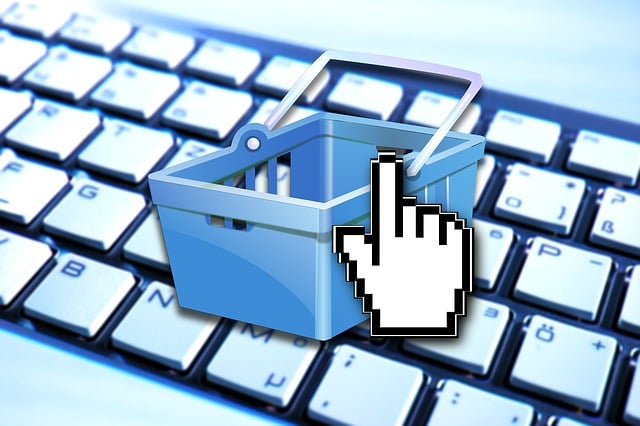Chatbot marketing for leads is a game-changer in the digital era, automating and qualifying prospects using AI. By gathering user data through natural language processing, these chatbots enhance lead capture, personalize interactions, and boost conversion rates. This strategy, with KPIs like conversion rates and reduced qualification time, optimizes sales funnels, especially for e-commerce, driving higher ROI.
In today’s digital landscape, lead qualification is a critical step in any sales strategy. Automating this process with chatbot marketing can significantly enhance efficiency and effectiveness. This article delves into the world of chatbot marketing for leads, exploring key aspects such as understanding lead qualification, leveraging chatbots for generation, implementing successful capture strategies, and measuring performance through analysis. By the end, you’ll grasp how chatbots revolutionize sales processes.
- Understanding Lead Qualification and Chatbot Marketing
- Benefits of Using Chatbots for Lead Generation
- Implementing Chatbot Strategies for Effective Lead Capture
- Measuring Success: Analyzing Chatbot Performance in Sales
Understanding Lead Qualification and Chatbot Marketing

Lead qualification is a critical process in any sales or marketing strategy, especially for businesses aiming to maximize their return on investment. It involves identifying and prioritizing potential customers who are most likely to convert into paying clients. In the digital age, with vast amounts of data available, automating this process has become essential. This is where chatbot marketing comes into play as a powerful tool.
Chatbot marketing for leads leverages artificial intelligence (AI) to create interactive and personalized conversations with website visitors. An AI assistant can engage users through natural language processing, gathering valuable information about their needs, preferences, and pain points. By simulating human-like interactions, these chatbots can qualify leads in real time, asking targeted questions to understand the user’s intent and level of interest. This technology is especially beneficial for e-commerce businesses, enabling them to streamline their sales funnel through efficient lead qualification and AI automation.
Benefits of Using Chatbots for Lead Generation

In today’s digital era, chatbot marketing for leads has emerged as a powerful tool for businesses looking to streamline their sales processes and enhance customer engagement. Chatbots, driven by artificial intelligence (AI), offer numerous benefits that traditional lead qualification methods simply cannot match. They can handle a high volume of inquiries simultaneously, providing instant responses to potential customers’ questions, which is crucial for capturing leads before they move on to competitors.
Moreover, AI automation agencies specializing in chatbot marketing for leads often integrate these virtual assistants into a sophisticated AI funnel, where chatbots learn and adapt based on user interactions. This level of personalization not only improves lead conversion rates but also fosters stronger customer relationships. Unlike static lead capture forms, chatbots can engage prospects through conversational interactions, gathering valuable data that helps sales teams focus their efforts on the most qualified leads, ultimately optimizing the entire sales process with AI sales tools.
Implementing Chatbot Strategies for Effective Lead Capture

Implementing Chatbot Strategies for Effective Lead Capture
In today’s digital era, chatbot marketing has emerged as a powerful tool for businesses to engage with potential customers and capture qualified leads. AI assistants, powered by advanced algorithms, can interact with visitors in real-time, gathering valuable information and understanding their needs without any human intervention. This initial interaction plays a crucial role in filtering out unqualified prospects, ensuring that sales teams focus on the most promising leads.
By leveraging chatbot marketing for leads, businesses can streamline their lead qualification process significantly. AI assistants can ask targeted questions, assess responses, and even provide personalized recommendations to guide visitors toward making a purchase decision. This not only enhances user experience but also enables marketers to gather insightful data that can be used for further optimization of marketing strategies. As a result, chatbot marketing becomes an indispensable component in the lead generation process, ensuring that every interaction contributes to the cultivation of high-quality leads.
Measuring Success: Analyzing Chatbot Performance in Sales

Measuring success is a vital aspect of any marketing strategy, especially when implementing chatbot marketing for leads. The performance of AI agents, or chatbots in this context, should be analyzed to understand their effectiveness in qualifying leads and improving sales. Key metrics include conversion rates, lead scoring improvements, and the overall reduction in time taken to qualify prospects. By tracking these, businesses can gauge how well their chatbot is performing and identify areas for enhancement.
Ecommerce AI, powered by advanced chatbots, has the potential to revolutionize sales processes. Analyzing chatbot performance allows companies to fine-tune their strategies, ensuring that each interaction with a potential customer is optimized. This data-driven approach enables marketers to create more targeted campaigns, enhance user experiences, and ultimately drive higher sales conversions.
Automating lead qualification with chatbot marketing is a strategic move that can significantly enhance sales efficiency. By leveraging AI-powered chatbots, businesses can effectively engage potential customers, gather valuable insights, and streamline the lead generation process. The benefits are clear: improved customer experience, increased sales productivity, and data-driven decision-making. Through proper implementation and performance analysis, chatbot marketing for leads becomes a powerful tool to drive business growth in today’s competitive landscape.
